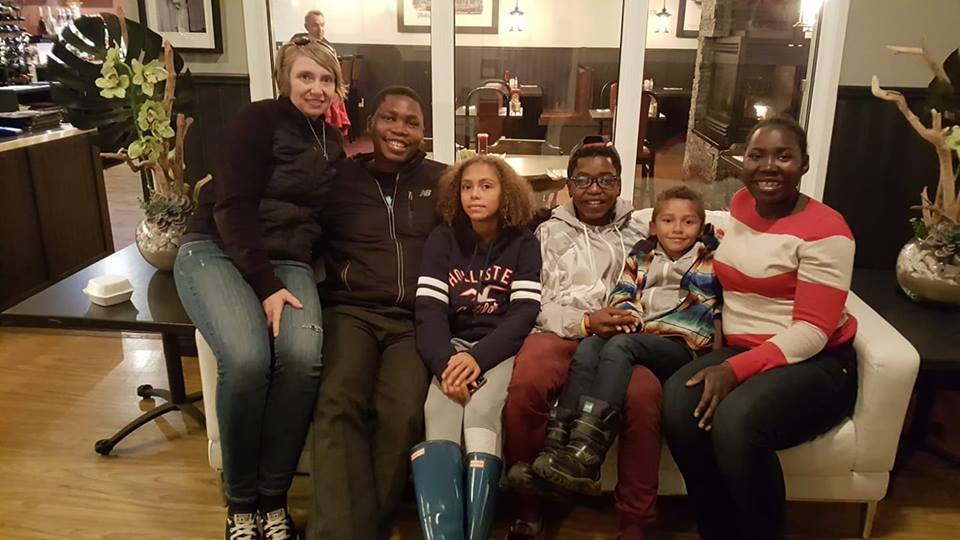I’ve been fortunate enough, privileged enough to have only observed poverty from a distance rather than experiencing it first hand. I volunteered at a charitable food provider in the Annapolis Valley with that in mind (and to be honest, to pad the resume.) Many people in the community use them, although few actually volunteer there. Much to my surprise, I’ve assisted at least three people who work at Chartwells dining hall, possibly more whom I haven’t recognized.
I find it quite demoralizing that the people who put the food on my plate in meal-hall are unable to afford to feed themselves. Wanting to find out more, I talked to people. I talked to the manager, Laura Miller, at Chartwells, who stated that employees can not take meals home due to food safety concerns, although I suspect this is primarily due to legal reasons.
Food poisoning is not something that they want to be liable for, and once food leaves the premises they cannot guarantee that it will be kept at a safe temperature. They are allowed to take small items such as fruit or the occasional dessert, but hot food is prohibited. She admitted that student employees are not covered under the union. Miller was not sure if her employees were being payed a living wage. Of note, according to a CBC article published in 2016, “Nova Scotians need $19/hour to keep [their] heads above water”, of which that pay is not likely at Chartwells and most other institutions in the valley. While she reported that no criticisms or grievances had been raised, it should not be surprising that employees may be hesitant to bring their complaints and grievances to upper management. Finally, she was troubled with the difficulties of matching employees to available hours.
Not satisfied, I talked to the unionized workers. They reported that from their perspective the job is pretty good. It provides good pay, as well as dental and medical coverage. Nevertheless they highlighted the fact that others struggled. Talking with a Union Representative further demonstrated this. Important to note, there were several key factors that differed in the conversations with the unionized employees and management, painting a less labour friendly picture.
Whether it be a full meal or a simple snack, taking food home was being heavily discouraged. While Management made it sound like students could join the Union if they had performed their time, the Union Rep informed me that this was not actually a possibility, effectively curtailing any possibility of advancement for novice employees working for Chartwells.
Still not satisfied and wanting the full story I spoke with the non-unionized workers, some of which are students at Acadia, though not all. I spoke first with a non-union employee who was forced to use the food bank. Due to their circumstances they’ve had to work multiple jobs. Grievances at work exist, and they feel that there is no opportunity for advancement, describing work in the lower echelon as hectic and busy, with a continuous and heavy work load throughout the day. While the treatment of service sector employees in this country is receiving more attention, this employee’s experiences speak for themselves when they describe the work as fast paced and unappreciated. They don’t believe they are making a living wage, although they are appreciative of the foodbank as it allows them to lighten their load of expenses.
I spoke to another non-unionized employee of Chartwells who doubles as a student at Acadia. They reported that they found the work demoralizing. While they did take food home from time to time, splitting it communally with the other student workers, this was heavily discouraged. Though they were paid and provided with a minor bonus for long time efforts, they reported that they did not enjoy working there. There was the common sentiment that Chartwells did not care about student workers and did not attempt to provide them with a fair opportunity for advancement, blocked effectively by an unrealistic expectation of the need for a heavy series of licences and time commitments. Exhausted people make exhausted food. This is evident to those who attended meal hall over the break.
Finally, I looked at my own experiences, those of fellow students both on and off campus, and a study by Acadia University’s Associate Professor Lesley Frank, which all point out the growing issue of food poverty. Dr. Frank’s study shows that this issue is not an isolated one, with food insecurity being an issue for both students who live on and off campus, with or without a meal plan. The ever-present need for food that is accessible and that can be cooked and consumed in a timely manner is one that detracts from a student’s learning ability and social life- it detracts from the Acadia Experience.
This issue is not an open and shut case. It is not finished. These people are not finished. I think we as students of Acadia university should care as much about the conditions that the people who make our food face as much as the food itself. We ethically source our food, the product, should we not ethically support our workers, the labour?
In Chartwells’ defense, they are likely treating their employees no worse than most other minimum-wage jobs in the Annapolis Valley, but why must we settle for the lowest common denominator here at Acadia University? Universities are supposed to be a place where social change prevalent, where progressive ideas originate from. Why is it that we as an academic institution have come to accept the status-quo of exploitative labour, on-campus and off? We as a student body, as a university, and as a society must do better in ensuring that the most marginalized among us are given a living wage, have enough food to eat, and have sufficient opportunity to escape the lowest classes. It seems to me that although we at Acadia identify and discuss these issues from a global perspective, we have done a poor job at working to combat social injustice right here on campus.
Sean A. Schofield is a fourth-year history major
Max S. Abu-Laban is a first-year environmental & sustainability studies major





